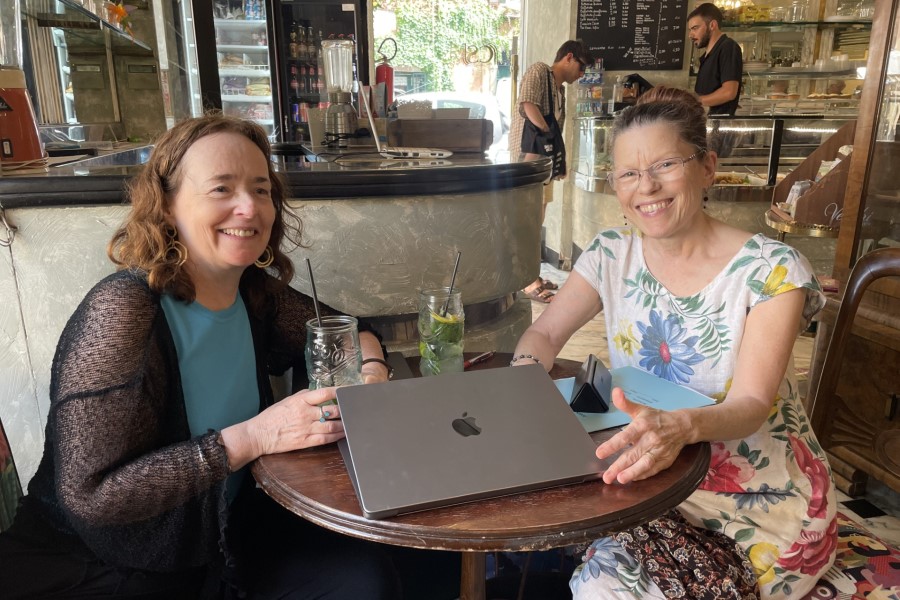Youth and Sustainable Development: JCU Welcomes AIESEC
What is the role of youth in the United Nations’ 2030 Agenda for Sustainable Development? In order to answer this question, the JCU Service Learning team welcomed two representatives of AIESEC, the world’s largest youth-run organization, on November 15, 2018.
A global, independent, non-political and non-profit organization, AIESEC is run by young adults up to age 30 in 127 countries worldwide. There are over 70,000 members, of 600 are in Italy.
Carlotta Mariani, AIESEC Vice President of Marketing & PR in Rome and Elisa Di Ieva, Volunteer Coordinator, were guest speakers in Professor Andrea Lanzone’s HS/RS371 The American 20th Century, where they discussed the United Nations’ Sustainable Development Goals of the 2030 Agenda (SDGs). These are 17 goals that the United Nations’ member states have agreed upon as being the most urgent matters to achieve by the year 2030. Among these goals are ending poverty, providing more accessible health care and education, while reducing inequality and tackling climate change and the preservation of oceans and forests.
Mariani, who is 26 years old, started the lecture by describing the history and core values of her organization. A group of young people from Belgium, Denmark, Finland, France, Netherlands, Norway, and Sweden founded AIESEC in 1948 and the socio-political and economic climate of that time shaped the organization’s principles. Following the tragic death toll caused by WW2, the goal was to provide young people all over the world with the opportunity to develop their leadership skills and careers in a peaceful world. “Peace is more than a world without conflict; peace is a status of harmony among people regardless of their backgrounds, points of view, or culture,” said Mariani. The core values of AIESEC are: “striving for excellence, demonstrating integrity, activating leadership, acting sustainably, enjoying participation, and living diversity.”
AIESEC offers young adults the possibility to go beyond cultural borders and help achieve the 2030 Agenda SDGs through internships all over the world. One of the most urgent objectives of the 2030 Agenda is Goal #4: Quality Education. Elisa Di Ieva, Volunteer Coordinator, explained that to reach this objective, AIESEC created a project called X4CHANGE in Brazil. International volunteers provide basic English and Spanish classes as well as teach computer skills to Brazilian children. The idea is to offer complimentary education and build a cross-cultural environment, in an attempt to impact the Brazilian community at large. Furthermore, Di Ieva proceeded to explain Goal #5: Gender Equality. “Gender equality is more than a fundamental human right; it is a necessary foundation for a peaceful, prosperous and sustainable world.” AIESEC sponsored a project called WISE, seeking the eradication of violence against women and girls, in all public and private spheres in Indonesia. The project entails delivering presentations in Indonesian schools, to increase awareness of violence against women and the importance of ending gender discrimination.
After the end of the lecture, Professor Lanzone made his concluding remarks by explaining why AIESEC was such an important guest in his course. “This seminar is dedicated to change and I invited AIESEC because the world changed in 1948 – both for the traumatic history of this year, but also for the groundbreaking creation of NGOs.” AIESEC is still standing after 65 years and offers internships in the humanitarian field all over the world. The organization continues to seek out committed, passionate and perseverant young people to show that maturity is not a matter of age but of matter of age but of motivation.
(Maria Teresa Di Benedetto)






